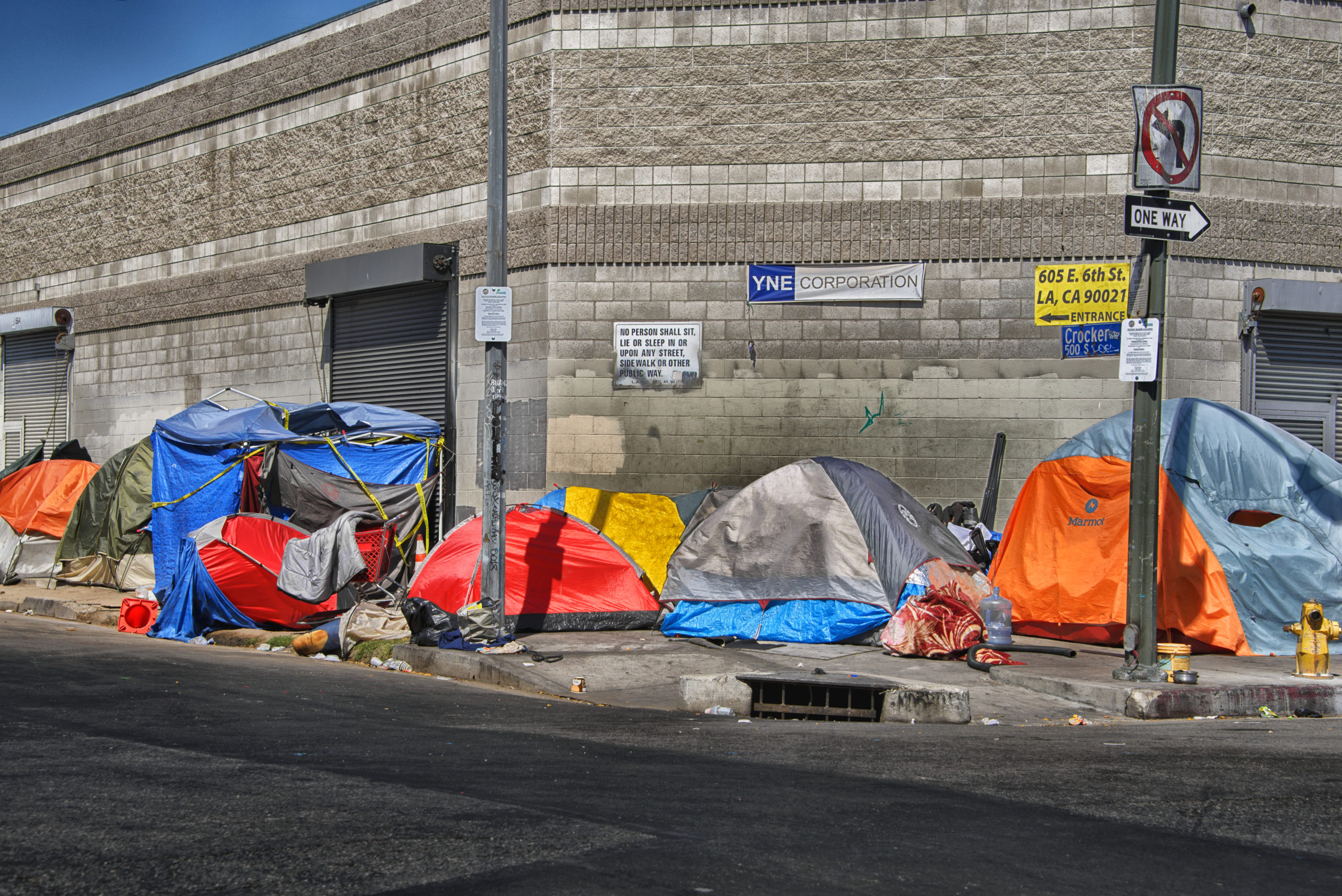A day after taking the matter under submission, a judge Tuesday rejected Los Angeles County’s bid to be dismissed from a lawsuit brought by a broad coalition of downtown businesses and residents seeking to force the city and county to step up their response to the rising number of homeless encampments on local streets and near freeways.
U.S. District Judge David O. Carter determined that the county’s claims of immunity are “inapplicable” against some of the plaintiffs’ allegations in the suit.
As for the county’s argument that it is not responsible for Skid Row since it is located within Los Angeles city limits, Carter found that the L.A. Alliance demonstrated that the county’s actions “cause the number of persons experiencing homelessness to increase or cause the conditions of homelessness to worsen.”
The county alleged in its dismissal motion, filed last month in Los Angeles federal court, that it spends hundreds of millions of dollars each year on homelessness and has quickened its pace in recent years. While stating that it shares the goals of the lawsuit lodged last year, the county maintained that the complaint is not a proper forum to achieve a remedy to the problem.
The judge, however, responded that “if the court finds an ongoing constitutional violation, it is obligated to impose a remedy.”
In the lawsuit, L.A. Alliance contends that the county has wasted money in fighting homelessness. Carter wrote Tuesday that the plaintiffs have shown that “at least some degree of government spending has been `unnecessary or useless’ in tackling the homelessness problem.”
Skip Miller, the county’s outside counsel, said the judge’s denial was expected.
“We are disappointed but not surprised that the court has denied the county’s motion to dismiss,” Miller said. “Meanwhile, we will continue to pursue our appeal to the Ninth Circuit of the court’s preliminary injunction order (to offer shelter to Skid Row homeless).”
In a brief hearing via Zoom on Monday, city and county lawyers blamed each other’s sides for not better responding to the crisis on Los Angeles streets.
Carter has set hearings later this month to discuss issues including binding financial agreements to pay for homeless housing, and the specter of “structural racism.”
The city and county are in agreement about hitting pause on Carter’s recent order that all indigent persons in the Skid Row area must be offered shelter within six months. The defendants filed an emergency motion for a stay pending appeal with the U.S. 9th Circuit Court of Appeals last month, but it was not known when the panel would render a decision.
Carter’s mandatory order set a timetable for offers of shelter to be made to about 2,000 homeless people living on the streets of Skid Row by October.
The sprawling 50-block area just blocks from Staples Center contains one of the largest populations of indigent people in the nation.
During more than a dozen federal court hearings, the lawsuit has become bogged down in bureaucratic snarls between the city and county, prompting Carter to deploy the power of the federal court to speed up efforts to get city sidewalks cleared and place homeless people into housing.
L.A. Alliance lawyers have written that Skid Row is a “catastrophe created by the city and county” in which the city long ago adopted a policy of “physical containment” where the poor, disabled and mentally ill would be “contained” inside the delineated borders of downtown.
In response to the county’s request to stay Carter’s timetable, the judge reiterated his intention to keep the order in place and added new directives with an admonition that without a global settlement, the housing deadlines would remain in place.







